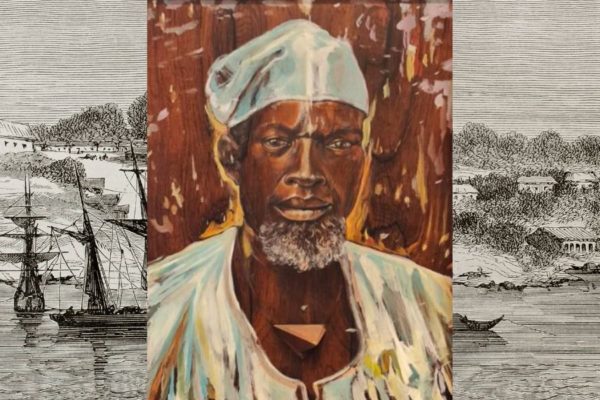Not only do the writings of Omar Ibn Said provide a unique insight into life as a black slave in the American south, but it also provides an often-ignored look at the life of early Muslims in America as well.
Not only do the writings of Omar Ibn Said provide a unique insight into life as a black slave in the American south, but it also provides an often-ignored look at the life of early Muslims in America as well.
Not only do the writings of Omar Ibn Said provide a unique insight into life as a black slave in the American south, but it also provides an often-ignored look at the life of early Muslims in America as well.
The Library of Congress has recently made available to the public an online version of the single surviving autobiography of Muslim-American slave, Omar Ibn Said, who was enslaved in 1831 in West Africa and brought to Charleston, South Carolina, deep in the American South. Not only does his collection of writings document an important part of black history in the Americas, but it also provides a unique look into the historical relationship between Islam and the United States.
Omar Ibn Said was part of the Fula ethnic group in West Africa, somewhere between modern-day Senegal and the Gambia. After surviving the horrors of the trans-Atlantic slave trade, Oman Ibn Said was then sold to a white man named Johnson, who according to Said’s diaries treated him with cruelty. Said escaped Johnson and ran away, only to be captured again and thrown into jail in Fayetteville, Nort Carolina. While in jail, Said first began his writings, scribbling with what he could in Arabic on the walls of his prison. This became the first part of his collection of writings, which would later become his treasured autobiography. Eventually bought out of jail by brothers Jim and John Owen, who happened to be the Governor of North Carolina, Omar Ibn Said lived out the rest of his days in their household, converting to Christianity and then later passing away in his late 80s.
His collection of writings, written in Arabic, was first put together in 1860 by Theodore Dwight (1796-1866), a self-proclaimed abolitionist and co-founder of the American Ethnological Society. Based on his curiosity of West African culture and Islam, Dwight commissioned the translation of Omar Ibn Said’s Arabic writings into English to better understand the life of this previously unrecognized Muslim-American slave.
Not only do the writings of Omar Ibn Said provide a unique insight into life as a black slave in the American south, but it also provides an often-ignored look at the life of early Muslims in America as well. While much of the anti-Muslim politics of today showcase Muslim culture in the U.S. as a recent phenomenon, historical writings like this provide evidence that Muslims have been in the U.S. since the very foundation of the modern nation-state. In addition, the fact that his writings were not translated by his white slave owner and instead by an academic in later years helps keep the writings authentic and unchanged, as oftentimes white slave owners would change the narrative of their slave’s writings to keep their own integrity and reputation intact.
Said’s writings also showcase another important aspect of the many Africans forcibly brought over to the United States: they were highly educated and literate, coming from great educational backgrounds in Africa. Omar Ibn Said writes of his educational background and love for knowledge, and even describes the institutions he studied at in Senegal. This shows that black slaves were not all illiterate (they might have been in English, but certainly not in their native languages) and that they came from highly educated cultures and backgrounds across the continent of Africa. The long history of written traditions in West Africa is preserved by the writings of Omar Ibn Said, something that is all too often overlooked when considering the history of Africa during the slave-trade. The complexity of both Africa and of the lives of black slaves is given new light and helps recognize the contribution West African culture has had on a globalized scale.
The Omar Ibn Said Collection, now available online for the public by the Library of Congress, consists of 42 original writings in both Arabic and English, and while the most famous of the manuscripts is “The Life of Oman Ibn Said”, there are also writings by numerous other individuals from West Africa who were forcibly brought to the Americas as slaves. Representing a groundbreaking look into the lives of not only black slaves in the American south but also some of the first Muslims in America, Omar Ibn Said’s manuscripts are both timely and priceless. In the hopes that the horrifying history of our past will not be forgotten, Omar Ibn Said’s writings may just be what we all need to read in this time and day.
The collection can be found here.





